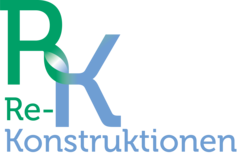Re-constructions: Changing Times for Germany and Italy since 1989
Joint project funded by the Federal Ministry of Education and Resarch (BMBF)
The project "Re-Constructions of the German-Italian Academic Forum for Contemporary History and Politics", developed in cooperation with "Villa Vigoni – German-Italian Centre for European Dialogue" and funded by the BMBF, examines the patterns of reaction to political and social crises, starting from the situation triggered by the Covid-19 epidemic.
The part of the project being rolled out by DHI Rome (Max Weber Foundation – German Humanities Institutes Abroad) analyses in particular the effects of the historical caesura of 1989 on Italy.
The collapse of the communist regimes in Eastern Europe, combined with a major political corruption scandal, triggered lasting changes on the Italian Peninsula. The crisis of the party system that had been in place since the founding of the Republic in 1946 was so drastic that there was talk of emergence of a new body politic, a "Second Republic". This led to the political rise of groups whose origins, socialisation and recruitment have yet to be thoroughly studied. The newly found fluidity of political movements also led to new forms of executive power, and to a greater use of ministers and prime ministers devoid of a parliamentary mandate. The political culture of the "Second Republic" can also be interpreted as a form of coping with the consequences of dictatorship.
The three-year joint research project was guided by a steering committee of experts from the fields of history, media, sociology, diplomacy and economics. It has received around 0.6 million Eur of funding from the Federal Ministry of Education and Research (BMBF). Work got under way on 1 November 2021.
DHI Rome was involved in two sub-projects:
On the "Transformation" of the New Political Elites in Italy – from the 1990s to Today, Project conducted by PD Dr. Francesco Di Palma (1.11.2021–30.11.2023)
Technocrats with Government Authority in Italy since the 1990s, Project conducted by Dr. Sarah Lias Ceide (1.10.2022–30.04.2024)
There was also intense cooperation as regards content for the research project of Dr. Lars Döpking: Capitalism, what now? Growth Strategies in Western Europe since 1979
and for Italian-related parts of the joint project:
De(constructing) Europe – Euroscepticism in the History of European Integration


